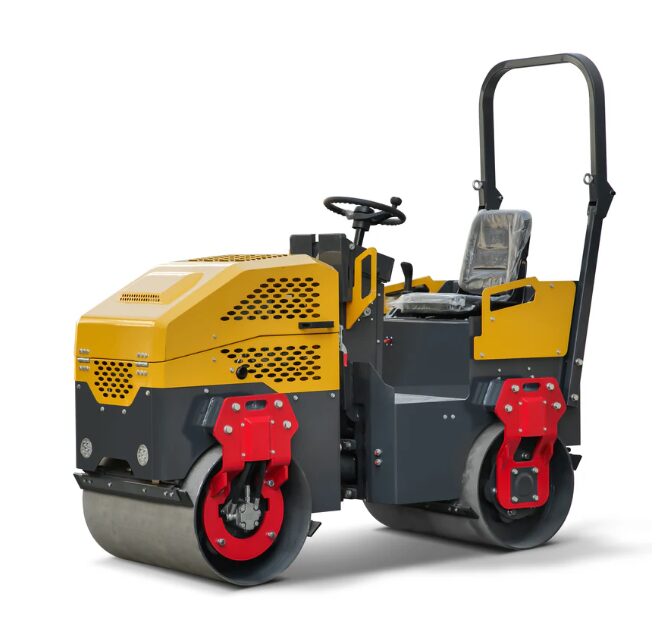Business
Choosing Between Mini Excavators and Skid Steers for Your Site

The construction industry often relies on compact machinery to navigate tight job sites effectively. Among the most popular options are mini excavators and skid steers, each designed for specific tasks and environments. Understanding the differences, benefits, and applications of these machines is crucial for contractors and construction professionals looking to enhance their operations.
Understanding Mini Excavators
A mini excavator is a smaller version of a traditional excavator, generally weighing between 0.8 to 2 tons. It features a boom arm equipped with a bucket and is mounted on either rubber or steel tracks. Mini excavators excel in tasks such as digging, trenching, and demolition.
Key features include:
– **360-degree rotation**, allowing for precise digging in confined spaces.
– Excellent performance on delicate ground surfaces.
– Compatibility with various attachments, including augers, rippers, and hammers.
At MMSCE.com, a range of mini excavators is available, featuring diverse sizes and engine types, such as Rato gasoline and Kubota diesel engines. This variety ensures that contractors can find a model tailored to their specific needs.
Exploring Skid Steers
In contrast, skid steers are compact machines known for their agility and versatility. These four-wheel or tracked vehicles are primarily used for material handling, grading, and site cleanup.
Notable features include:
– A **tight turning radius** that enhances maneuverability in tight areas.
– Front-mounted tools, such as buckets, forks, and sweepers, for various applications.
– Efficiency in loading, grading, and transporting materials.
Skid steers can be effectively combined with other equipment, such as Mini Dumpers and road rollers, to provide comprehensive solutions for diverse job sites.
Comparative Analysis: Mini Excavators vs. Skid Steers
When evaluating mini excavators and skid steers, several factors come into play:
– **Primary Use**: Mini excavators are ideal for digging and trenching, while skid steers are better suited for loading and grading.
– **Mobility**: Mini excavators are tracked for stability on uneven surfaces, whereas skid steers can be either wheeled or tracked for flat terrain.
– **Maneuverability**: Mini excavators offer 360-degree rotation, while skid steers provide a tight turning radius.
– **Operator Comfort**: Both machines offer various cab options, with mini excavators featuring ergonomic controls for enhanced user experience.
Making the Right Choice
Choosing the appropriate machine depends largely on the specific requirements of a project. Mini excavators are particularly advantageous for tasks requiring precision digging, such as trenching or light demolition. For instance, the MS10 Mini Excavator from MMSCE.com, with a **15 HP engine** and a **68.9-inch digging depth**, is well-suited for small-scale construction jobs. Pairing this with a Mini Dumper facilitates the efficient transport of excavated materials, significantly saving time and labor.
Conversely, skid steers are recommended for job sites focusing on material handling, grading, or backfilling. Their versatility allows for various attachments, making them ideal for site cleanup and loading operations. In cases where a smooth, compact surface is necessary post-excavation, road rollers are often utilized alongside skid steers to ensure durability and safety.
Enhancing Efficiency with Combined Equipment
Many construction projects benefit from the integration of multiple compact machines. Utilizing mini excavators, Mini Dumpers, skid steers, and road rollers in tandem creates an efficient workflow:
– **Mini Excavator**: Handles all digging and trenching tasks.
– **Mini Dumper**: Transports soil, gravel, and debris from the excavation site.
– **Skid Steer**: Loads materials into trucks or redistributes soil across the site.
– **Road Roller**: Compacts the area after digging to provide a stable foundation.
Employing this combination streamlines operations, reduces labor costs, and enhances the overall project outcome. MMSCE offers these machines at competitive prices, along with fast shipping and robust U.S.-based support.
Safety and Training Considerations
While both mini excavators and skid steers are designed for safe operation, proper training is essential. Operators should be familiar with:
– Control systems and safety features.
– Procedures for handling attachments.
– Site-specific hazards and precautions.
MMSCE provides detailed user manuals, technical support, and a one-year warranty on all equipment, ensuring long-term maintenance and operational success.
Conclusion
When deciding between a mini excavator and a skid steer, it is vital to consider the specific needs of your job site. For precision digging, a mini excavator stands out as the optimal choice, while skid steers excel in moving and grading materials. For comprehensive efficiency, incorporating a Mini Dumper and road rollers into your fleet can significantly enhance productivity and streamline operations. Visit MMSCE.com to explore high-quality compact construction equipment designed to meet the demands of any job site.
-

 Entertainment2 months ago
Entertainment2 months agoIconic 90s TV Show House Hits Market for £1.1 Million
-

 Lifestyle4 months ago
Lifestyle4 months agoMilk Bank Urges Mothers to Donate for Premature Babies’ Health
-

 Sports3 months ago
Sports3 months agoAlessia Russo Signs Long-Term Deal with Arsenal Ahead of WSL Season
-

 Lifestyle4 months ago
Lifestyle4 months agoShoppers Flock to Discounted Neck Pillow on Amazon for Travel Comfort
-

 Politics4 months ago
Politics4 months agoMuseums Body Critiques EHRC Proposals on Gender Facilities
-

 Business4 months ago
Business4 months agoTrump Visits Europe: Business, Politics, or Leisure?
-

 Lifestyle4 months ago
Lifestyle4 months agoJapanese Teen Sorato Shimizu Breaks U18 100m Record in 10 Seconds
-

 Politics4 months ago
Politics4 months agoCouple Shares Inspiring Love Story Defying Height Stereotypes
-

 World4 months ago
World4 months agoAnglian Water Raises Concerns Over Proposed AI Data Centre
-

 Sports4 months ago
Sports4 months agoBournemouth Dominates Everton with 3-0 Victory in Premier League Summer Series
-

 World4 months ago
World4 months agoWreckage of Missing Russian Passenger Plane Discovered in Flames
-

 Lifestyle4 months ago
Lifestyle4 months agoShoppers Rave About Roman’s £42 Midi Dress, Calling It ‘Elegant’









